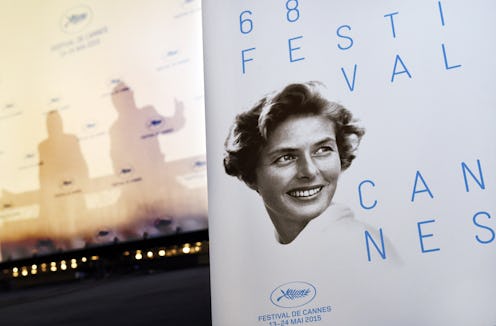The film industry has been a boys' club for far too long. It may be 2015, but, from the likes of what graces cinema screens and receives awards, you'd think we were still stuck in the 1900s. Let's never forget that at this year's Academy Awards, not a single female director was nominated for an Oscar. Not even Ava DuVernay was granted the honor, despite the fact that her film, Selma, was nominated for Best Picture. It's like the Academy thought the film just popped up from nowhere without a hard-working director at the forefront. Fortunately things might finally be changing. The Cannes Film Festival is honoring several female directors this year, and that's never been more important.
The French film festival has traditionally been a boys' club of its own. This year was the first time in 28 years (and only the second time ever) that a female-directed film headlined the opening night ceremony. Emmanuelle Bercot's Standing Tall helmed the prestigious start to the festival, but, fortunately, her film isn't the only female-led movie to get recognition. The top prize category also contains two movies by female directors (Maiwenn's Mon Roi and Valerie Donzelli's Marguerite & Julien). Deadline reports that the leading competition category has only previously had one female winner, and that was Jane Campion with The Piano back in 1993.
But, even better than that, is the news that the second competition category has four female directors up for the award. The short film competition has another two, and the student film section has six. Plus, first-time director Natalie Portman is debuting her film, A Tale Of Love And Darkness, at the festival.
It seems like in France, at least, female directors are finally getting their due. But the effort to increase diversity in the film industry can't stop there. The attitude Cannes has had towards women needs to extend to American film festivals and award shows, and Hollywood in general.
A message needs to be sent to young filmmakers and actors, and really people everywhere, that a female-driven movie can be just as cool, thoughtful, and good as a male-lead one. It's a change that's needed to help equalize the entire industry. As writer and filmmaker Jessica Scalise says, "The reason we do not have enough interesting female characters on the screen is that we do not have enough women behind the cameras, producing, directing, and writing them."
Hopefully, with Cannes leading the effort, things are finally about to change.
Image: Getty Images
